Did You Know That The Low FODMAP Diet is Not a Gluten-Free Diet?
Surprised? It is true; the low FODMAP diet is not gluten-free, but we understand that you might have thought that it was due to the many gluten-free recommendations that you see in prepared food products as well as individual ingredients when following the low FODMAP diet.
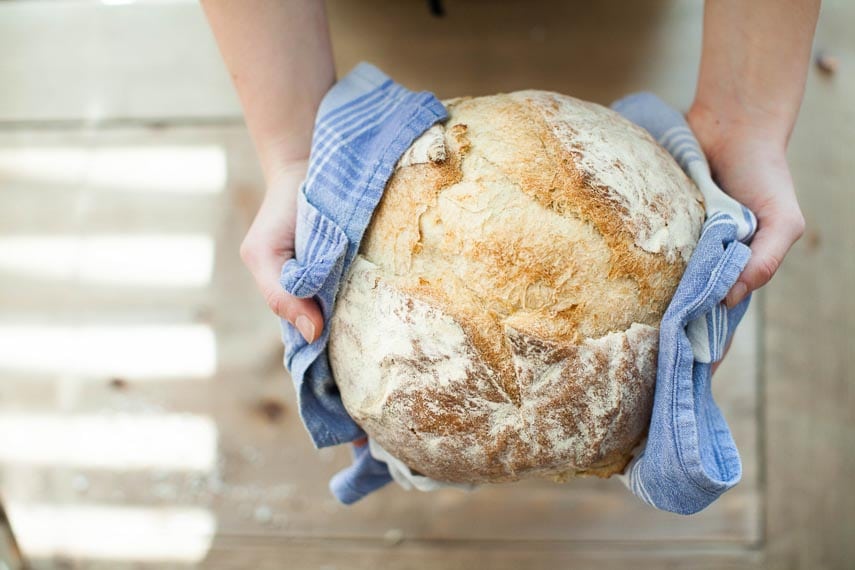
When we speak of gluten, wheat often comes up front and center, and for good reason. All-purpose flour is wheat based and is what so many traditional baked goods are made from ranging from cookies to cakes, Danish to pies and tarts, pasta and plain old sandwich bread.
Barley and rye contain gluten as well, but it is wheat that is so omnipresent, so let’s focus on that for a moment.
Wheat Contains Gluten & Fructans
The issue is that that wheat not only contains gluten, it fructans, too, and fructans are a FODMAP. When you look at the Monash University Smartphone App the first category is Oligos, which actually encompasses both fructans and GOS (galacto-oligosaccharides).
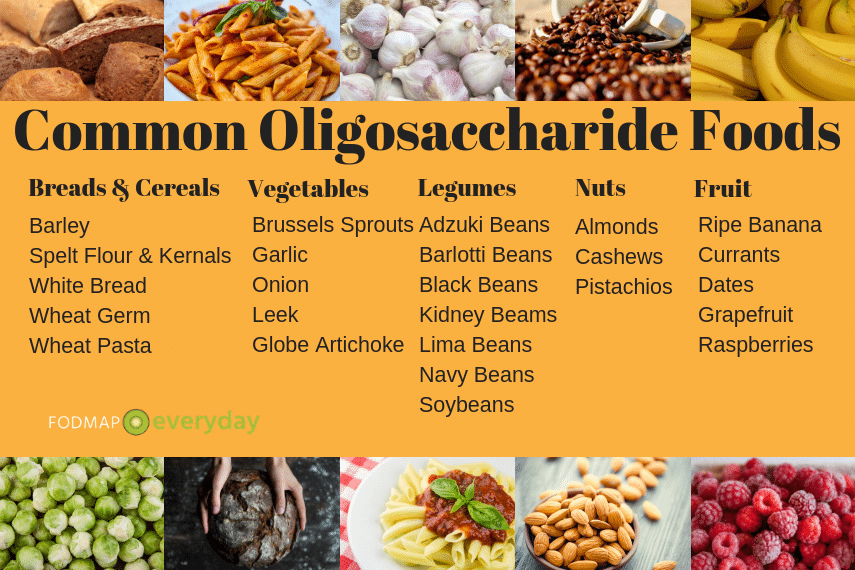
You May Want To Read: All About Oligosaccharides
We want to steer clear of fructans during the Elimination phase, and depending on what you learn during your Challenge phase, they might be something that you largely avoid.
Limit Wheat – Limit FODMAPs
When it is recommended that we eat gluten-free and wheat-free during the low FODMAP diet it is because we are trying to limit the intake of FODMAPs.
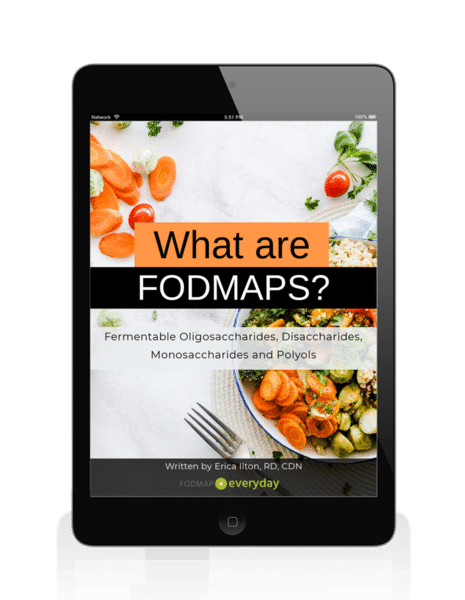
What are FODMAPs? – Download Our Ebook for FREE!
Are You Sensitive to Gluten or Have Celiac Disease?
We always suggest that you get an actual diagnosis of IBS from a gastroenterologist and during your screening a thorough doctor will screen you for celiac disease as well. There are exceptions, but this is a standard approach.
You might find out that you have celiac disease, in which case you will be avoiding all gluten from here on in. Or, you might have non-celiac gluten sensitivity (NCGS), which is typically diagnosed after both celiac disease and a wheat allergy have been ruled out.
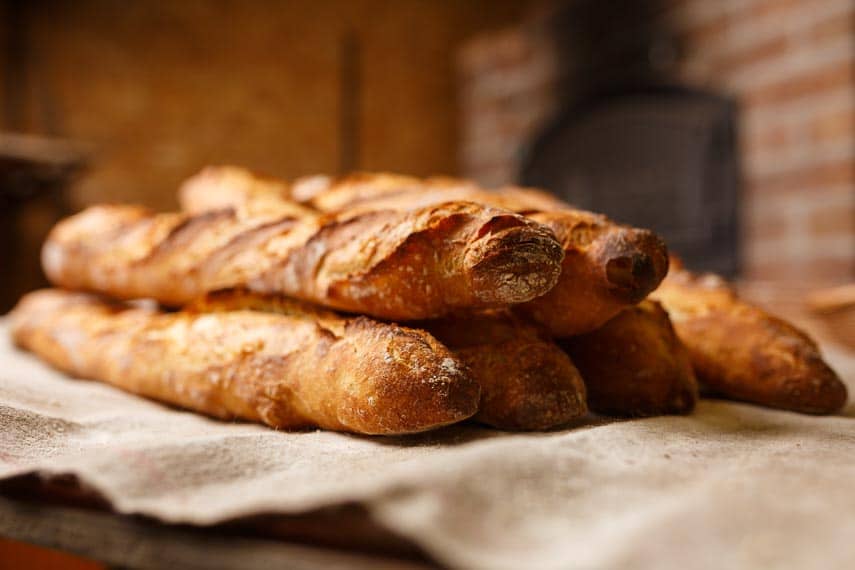
Time for a Challenge
If you do not have celiac disease, and you have completed your Elimination phase, then at some point your registered dietitian will most likely suggest that you Challenge yourself with fructans.
Many dietitians take a multi-pronged approach, separating out garlic, onions and wheat-based bread from one another. They all contain fructans, but you might react differently.
And Then There is Sourdough Bread
Again, if you do not have celiac disease your dietitian might suggest trying a slice of traditionally slow-risen sourdough bread. This is bread that has no yeast added and that has risen for at least 24 hours, and 48 is even better.
This is because these breads contain fewer FODMAPs even though they are made with wheat flour.
Microbes in active sourdough cultures (also referred to as the “starter”) actually consume fructans in the wheat during the long fermentation period. This results in a sourdough bread more that is more digestible for many people.
To learn more, read our article on How Fermentation Affects the Content of Sourdough Bread & Dairy Foods.
By Challenging yourself with both conventional wheat bread (like sandwich bread) and slow-rise sourdough – separately – you will be able to assess whether you are reactive to gluten, the fructans in wheat, reactive to both gluten and fructans or possibly neither!
Work with your dietitian on the amount of bread to try and the timing of your Challenges.
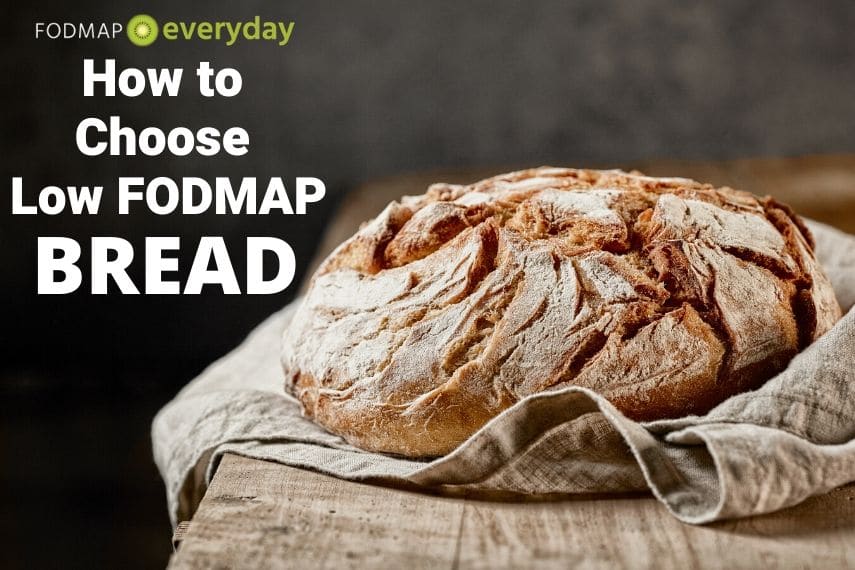
You May Want To Read: How To Choose Low FODMAP Bread
Take Your Time
A structured Challenge phase takes time, but it is so worth it. It is the only way that you will be able to gather discerning feedback from your own digestive system.
When you know what your reactions are to the gluten as well as to fructans in wheat then this information can guide you in recipe and meal choices.
Knowledge is power!
- Read More About The Low FODMAP Diet vs A Gluten Free Diet in an article by FODMAP Friendly.
- Or this article by Monash University on Gluten and the Low FODMAP Diet
- You might also enjoy reading our article, Choosing a Low FODMAP All-Purpose Flour.

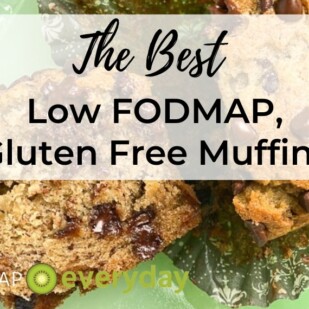






I thought you would provide a starter and bread recipe?
Hi Jaine, so sorry to disappoint! We are just hitting our 6th month and have published 140 articles and just under 300 recipes. We joke that I am chained to the stove, but the truth is, sometimes I “get” to be chained to the computer! Humor aside, we will put your request on the list. Thank you so much for being engaged with the content and we hope that FODMAP Everyday is proving useful in your FODMAP journey!
Thanks for the article it was very interesting
We are glad you found it so!
Dédé and Robin, I’m very grateful for your website. My husband was diagnosed with IBS around the time you launched FODMAP everyday and I’m here often for advice. I am a passionate cook and baker and I find your work very inspiring.
Since our adaption to a low FODMAP diet, I started baking my own sourdough bread, mostly spelt. We live in Switzerland and spelt has experienced quite a revival in the past years. I’ve made a spelt sourdough starter from scratch and have baked with it with great results. The breads have a fantastic aroma and my husband can eat it almost with no restrictions (weat works well when he limits his consumption, rye does not work well).
My main help in baking spelt sourdough breads come from Lutz Geissler, the German “bread pope”. He has a blog and several books, however all are in German: https://www.ploetzblog.de/. If you understand German it really is a great resource.
Anina, thank you so much for writing. Much of what you said is fascinating. For instance the fact that you have figured out what some wheat is digestible for your husband but rye is not just goes to show you that everyone’s digestive issues are very individual and learning to trust your own reactions is very much a part of this low FODMAP journey. The images on the site you provided are fabulous! I do not speak or read German, but there is always Google translator! We are so happy to hear that FODMAP Everyday has been helpful to you. We hope to continue to bring you recipes and articles that help those like you and your husband.
I JUST found your site and I’m so happy and grateful!! I subscribed and can’t wait for my 1st 5 emails 💕💕
Welcome aboard! Take some time looking a round. There is a lot – and we are here to help.
The problem I have with breads out there is they have soy in them, and I am allergic to it. All forms of it. They should not have soy in any Gluten free product and the stores should have a section for soy free items. It is very hard to manage diabetics, allergies and no fodmaps. I tried the breads out there and most are nasty. Canyon Bake house, is the best bread I have found! The only thing is it is expensive to live this way that is why I have to make some bread to offset my expenses. I spend over 50 dollars a month just on staples like eggs, bread, meat. If you know of any recipes for bread that would meet my needs, Please let me know. Thanks
Hi Laurie, we understand how difficult it can be to manage several dietary needs at once. Can your dietitian offer some more guidance? Also, maybe our article on budgeting might help.